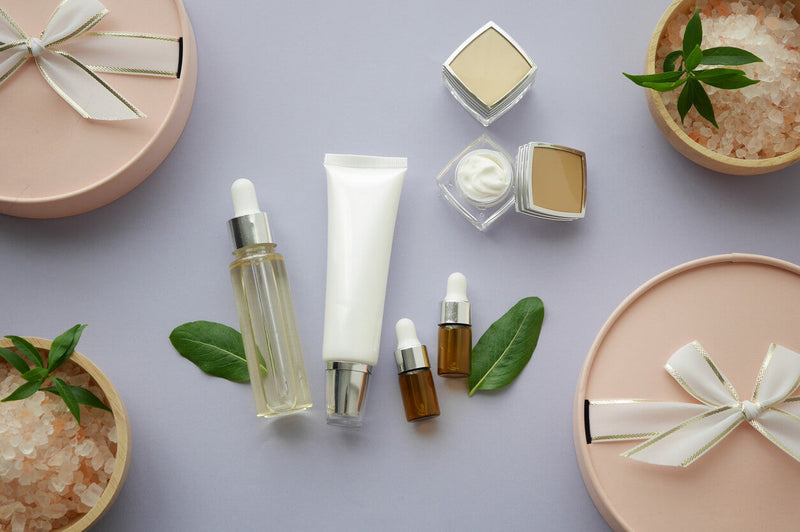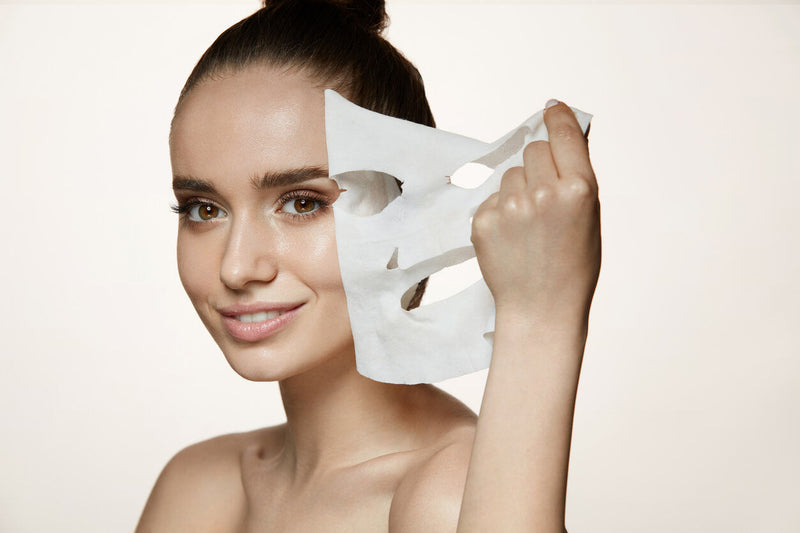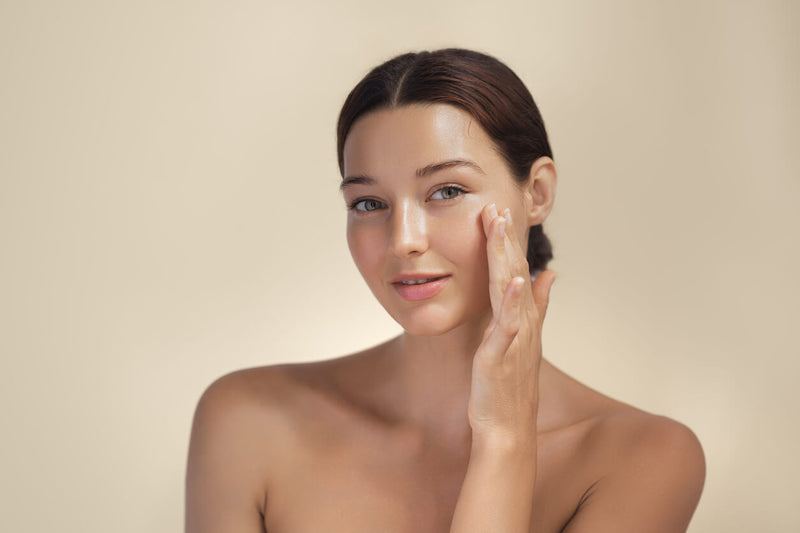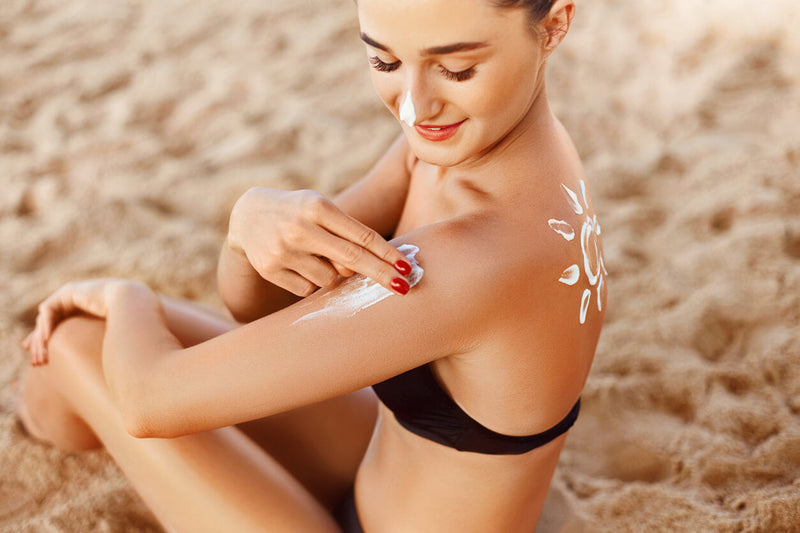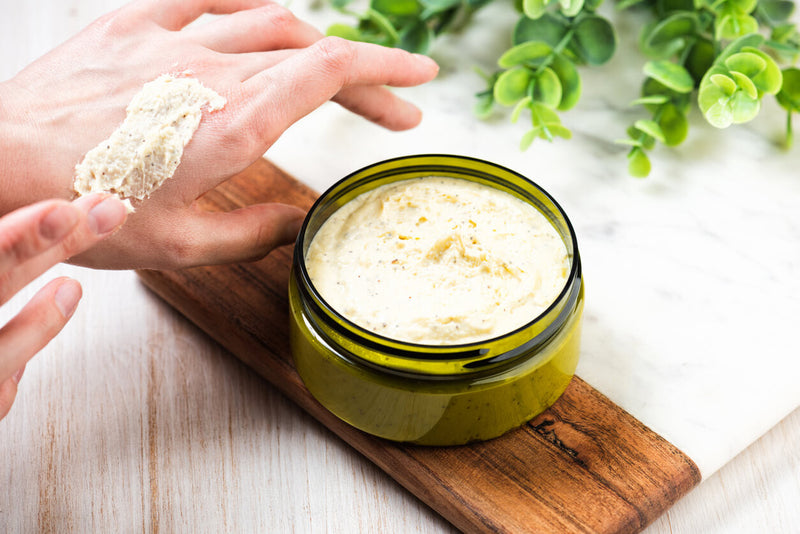

Genes define the starting point of our skin (story). They play a key role not only in determining our skin type, tone, and texture, but also in how it reacts to sun, stress, and other factors. But how much of our skin’s appearance and overall health are actually inherited and how much is influenced by non-genetic factors?
How much genetics influence your skin
Lifestyles and environment play significant roles, but genes may have more influence than we give them credit for. They have key roles in various aspects of skin health, including:
-
Hydration levels
-
Acne tendencies
-
Pore size
-
How much oil/sebum you produce
-
Conditions like rosacea
-
How it responds to aging processes
Studies indicate that genes influence around 60% of skin aging. This means that they set the stage or provide the foundation, but they don’t control the whole story. The remaining 40%, which is still a lot, is influenced by environmental factors and lifestyle choices.
And while you can’t change your DNA, understanding its role might just help you care for your skin more effectively. It is all about giving your skin the best chance to thrive by focusing on the things you can control.
What your genes cannot control
While genes determine how your skin looks and behaves, they cannot protect you from environmental aggressors and other factors. UV exposure, pollution, and lifestyle habits can have a greater impact on skin health and aging than genetics. They are major contributors to extrinsic aging or the premature aging of the skin caused by external factors.
-
Sun exposure – is responsible for up to 80% of visible aging, including wrinkles, pigmentation, and loss of elasticity.
-
Pollution – speeds up the breakdown of collagen and elastin, contributing to wrinkles, sagging, and age spots.
-
Lifestyle choices – such as diet, hydration, sleep, and stress management all play a role in how your skin looks and functions.
-
Skincare – which includes the right products and practices helps protect, repair, and maintain the skin’s resilience against the things your genes can’t control.

What you put on your skin makes a difference
Topical skincare offers not only surface-level glow; it also plays an important role in protecting and strengthening your skin. Antioxidants, for instance, help neutralize free radical damage caused by UV rays, which can reach the skin even when you’re wearing a high-SPF sunscreen.
A thoughtfully formulated skincare is an important tool for preserving skin health over time and products with proven actives can work wonders. Here are four skincare ingredients that have strong scientific backing.
-
Retinoids – accelerate cell turnover, encourage collagen production; help improve fine lines and refine texture.
-
Vitamin C – brightens the skin, helps with collagen synthesis, and protects against pollution and UV-induced free radicals.
-
Niacinamide – is a vitamin B3 derivative that strengthens the skin barrier, repairs signs of skin damage, fades discoloration, and enhances overall skin clarity.
-
Alpha Hydroxy Acids (AHAs) – are chemical exfoliants that shed away dead surface skin cells and increase cell turnover; help brighten skin and reduce the appearance of fine lines.

While we can’t deny that DNA plays a major part, how you care for your skin daily can also shape how it ages. Consistency, quality ingredients, and smart choices make the difference. At Dr. Sylvia Skin Care, we offer medical-grade skincare that can protect and nourish your skin, as well as elevate your regimen.
-
20% Vitamin C with Ferulic Acid – protects against environmental damage, brightens complexion, and reduces the look of fine lines and wrinkles
-
20% VitaGlow C & E – an antioxidant with ascorbic acid, vitamin E, and niacinamide. It helps neutralize free radicals, fade dark spots, and boost collagen production.
-
AHA Resurfacing Serum – contains glycolic acid that helps exfoliate the skin. It can fade dark spots and reduce the visible signs of aging.
-
Hydra Pro with MoistureLock Complex – hydrates and nourishes your skin without leaving any oily residue. It provides intense hydration, soothes the skin, and boosts radiance.
-
P-TIOX Peptide Serum – inspired by the effects of anti-wrinkle neurotoxin injections, it targets 9 types of expression lines, even those botulinum toxin injections do not treat. It helps unveil glass skin radiance in just one week.
What if you didn’t win the genetic skin lottery?
It is perfectly fine. Not everyone is born with flawless, resilient, and low-maintenance skin. Genetics might provide the foundation, but they don’t necessarily define your skin’s future. Knowing and understanding your skin type and the concerns you’re dealing with can help you build a routine that works with your skin.

Here’s a basic starting point:
-
Acne/breakouts – formulas with salicylic acid or benzoyl peroxide can help unclog pores, kill acne-causing bacteria, and reduce inflammation.
-
Redness or sensitivity – choose soothing ingredients such as niacinamide, aloe vera, centella asiatica, hyaluronic acid, and squalene. Avoid harsh ingredients such as alcohol, sulfates, and synthetic fragrances.
-
Signs of aging – vitamin C and retinoids help boost collagen and improve lines and wrinkles, peptides firm the skin, and hydrating serums plump and protect it.
* A non-negotiable for your skin is the daily use of broad-spectrum sunscreen with SPF 30 or higher. Consistent use has been shown to lower the risk of skin cancer and slow visible signs of aging like fine lines, dark spots, and loss of elasticity.
Proactive care gives you the upper hand. The key, of course, is staying consistent. Results won’t appear overnight, but with patience and the right care, your skin will show noticeable improvements over time. This is because great skin isn’t just something you’re born with; it’s something you can build.
So, can you completely override your genetics?
Not really. But you can influence how your skin behaves and even how your genes express themselves. A combination of genetics and lifestyle determines skin health, but with a well-crafted routine and preventative care, you can slow down visible signs of aging, and create a stronger, healthier foundation for the future.
Bottom line: You may not be able to change your DNA, but you can change how your skin shows up. We at Dr. Sylvia Skin Care and Cutis Medical Laser Clinics can help you take control of your skin with medical-grade skin care, as well as science-backed treatments and personalized care.
For more skincare tips and product recommendations, browse through our blog today. You can also contact Cutis, our aesthetic clinic in Singapore, and schedule a consultation with one of our aesthetic doctors if you have skin concerns that are making you self-conscious.











